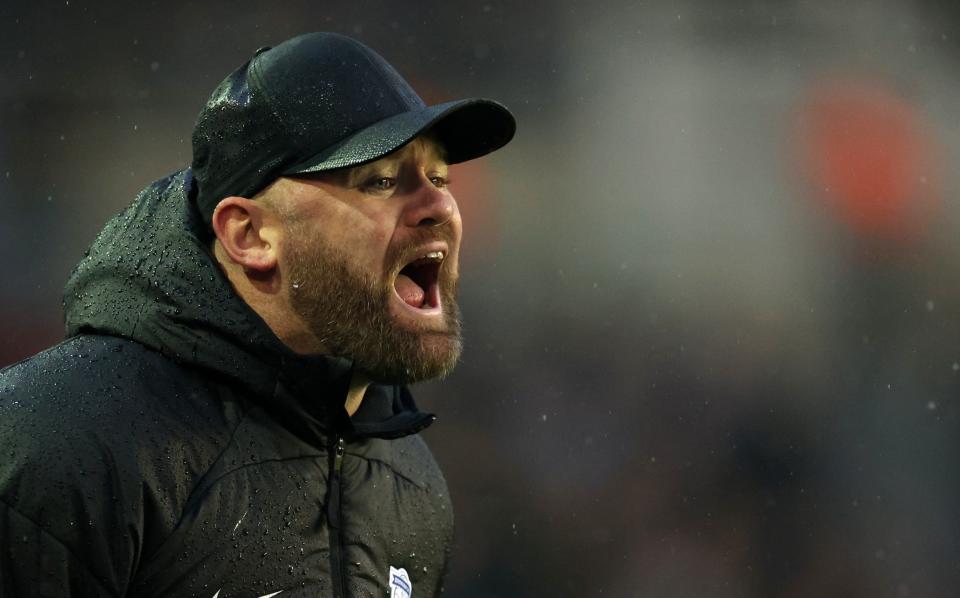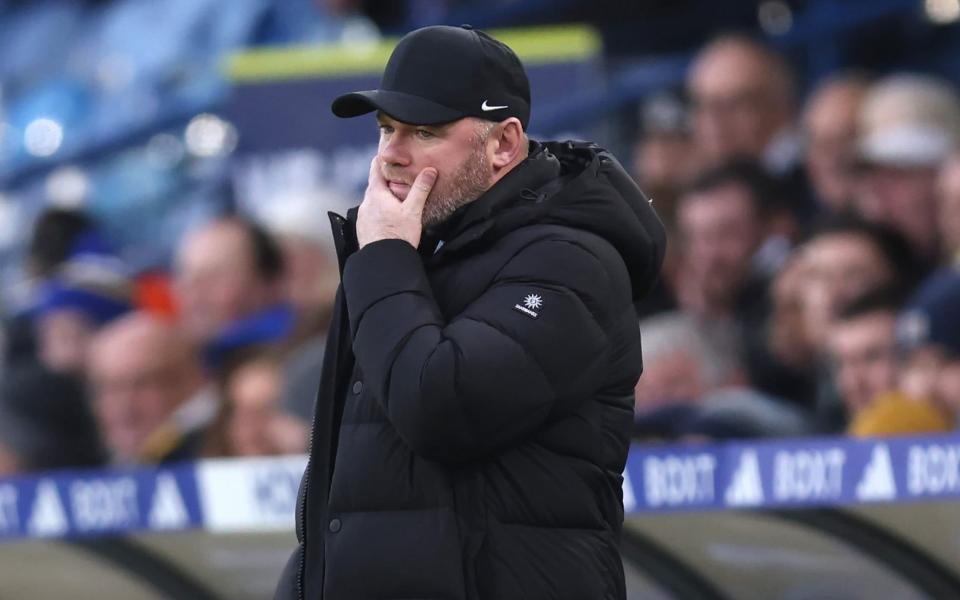Wayne Rooney the manager is trading on his name rather than track record

A “perfect next step” is how Wayne Rooney heralds his move to Plymouth Argyle, the fourth chapter of a managerial career that could most politely be described as chequered. But perfect for whom? Perhaps for Rooney and his wife Coleen, who are said to be busily house-hunting in Salcombe, Britain’s most expensive coastal town. But less so for those Argyle supporters who have taken one look at Wayne’s record of two relegations in three seasons and decided that it might be wisest, just for now, to reserve judgment.
It is not merely that Rooney’s first attempt at cultural assimilation has been to label one YouTuber’s Devon accent the “worst I have heard in my life” – a bold claim for a man whose Scouse brogue is so strong that for his 2015 documentary, The Man Behind the Goals, some BBC viewers complained of needing subtitles. It is that his record as a Championship manager is dismal. If Rooney thought he was unpopular when he replaced John Eustace at Birmingham City last October, it was nothing compared to the vitriol he faced after taking them from sixth to 20th in only 15 games.
Birmingham fell into League One earlier this month, their lowliest status for 29 years, with many fans laying the blame squarely at Rooney’s door. “The worst decision in football history” was among the more printable verdicts on his three-month tenure. But now up he crops again, securing his third Championship job at the expense of eminently more qualified candidates.
Take Paul Heckingbottom, one of those interviewed for the Plymouth role. The 46-year-old has a distinguished history of taking clubs up: Barnsley to the Championship in 2016, Sheffield United to the Premier League last year. Rooney, by contrast, is so far known exclusively for taking them down: Derby County in 2022, Birmingham this year – even if it was left to caretaker Gary Rowett to reap what the former England striker’s calamitous St Andrew’s reign had sown. His only other stint, at DC United in Major League Soccer, ended in a mutual parting of ways after he twice fell short of the play-offs.
This is not, by any standard, a body of work that inspires confidence. Except Rooney seems bulletproof, finding himself parachuted into Plymouth with barely a murmur about his past missteps. Surely the club have done their due diligence, conducting a thorough search. If so, the appointment of Rooney flies in the face of common sense. Yes, there have been mitigating factors in his touchline failures, with behind-the-scenes chaos at Derby – not to mention 21 points of deductions – all but sealing their fate. The Birmingham debacle, though, is impossible to defend. From publicly denigrating his players to winning just two matches, his stewardship was a study in cluelessness.

And this was the most recent evidence on which Plymouth could base their decision. It feeds the impression that Rooney has been recruited less for any firm belief in his competence than for the frisson of name recognition alone. Clubs in the Championship tend to grow terribly excited when a figure of Rooney’s stature becomes available. A “defining moment,” declared Garry Cook, Birmingham’s chief executive, on his arrival. All it defined, ultimately, was the foolishness of the club’s board. What made it worse was that they had the same mistake over perceived brand value before, replacing Rowett with the more glamorous Gianfranco Zola in 2016, only to watch the Italian resign four months later after two victories in 24.
It is not Rooney’s fault that, despite his dubious credentials, he has been handed the key to another club with lofty ambitions. In one sense, he deserves praise for turning down the easier option of the punditry sofa. He can be a lacerating analyst when the mood takes him and is hardly short of offers to take his TV work further. Clearly, he wants to improve, to show that he is not as tactically harebrained as his ill-starred spells in the Midlands have made him appear. And yet simple desire is not a good enough reason for him to keep receiving the nod over people such as Heckingbottom or Alex Neil, who bring limited personal profile but proven Championship pedigree.
There is an immutable truth in football that the finest players seldom make the most effective managers. Even England’s greatest of all, Sir Bobby Charlton, found his ceiling during a couple of bleak campaigns at Preston. But nowhere does the rule hold truer than with the country’s supposed “Golden Generation” of the early 2000s. Almost without fail, the members of that formidable England team have been found out on the touchline.
Frank Lampard is a classic of the “too much, too soon” school, elevated to the Chelsea position at the age of 31 but now miles away from any Premier League option after one torrid stretch at Everton and two at Stamford Bridge. Steven Gerrard is handsomely remunerated, if somewhat off-grid, in Saudi Arabia. Gary Neville lasted 3½ months at Valencia in 2016, while Paul Scholes spent a meagre 31 days at Oldham Athletic in 2019. As yet, there are few suggestions that Rooney is cut from different cloth. The difference is that he is being offered more chances to demonstrate his shortcomings. At one level, it is possible to be impressed by his sheer resilience. But at another, it is uncomfortable to watch his habit of failing upwards, with clubs ignoring established talent to worship at the altar of his celebrity.

